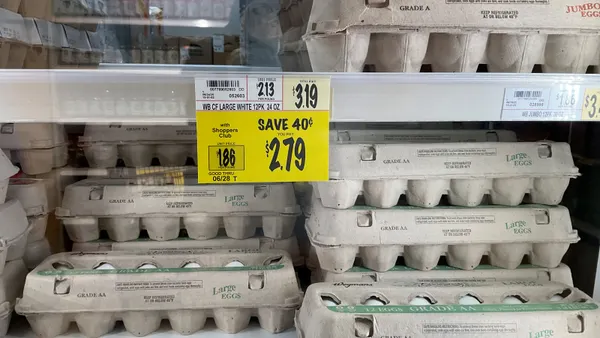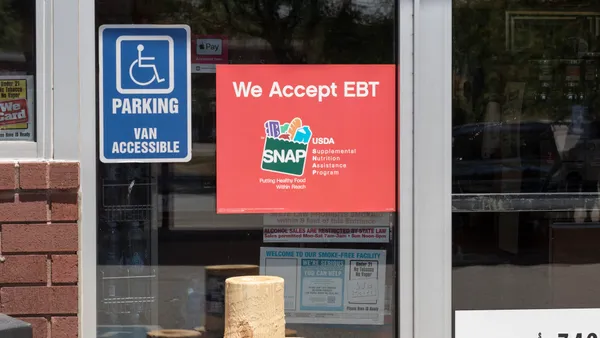What happens when the founder of a major natural food company and a former category leader at the nation’s leading specialty grocer get together and start a supermarket?
Shoppers in Portland, Oregon will find out next month. That’s when Basics Market, a small store focused on healthy and sustainable foods will open on the city’s east side. The store is spearheaded by Chuck Eggert, the founder of Pacific Foods, with help from Errol Schweizer, who led the grocery department at Whole Foods for eight years. Two more locations are slated to open in Oregon — one in Tulatin at the end of this year, the other in Beaverton in 2019.
A supermarket headlined by two of the biggest names in natural food retailing is certainly worth watching. But if observers are expecting Whole Foods 2.0, they will be disappointed. Although it qualifies as a natural and organic market in a city teeming with them, Basics Market breaks the mold with a refined approach to health, meal assembly and culinary education.
“A lot of these things are going by the wayside with mainstream grocers,” Eggert told Food Dive.
First, there’s the space itself. At just 7,500 square feet, it’s an intimate setting that carries a curated selection of just 500 or so items, including fresh meat and eggs from Eggert’s family farming operation, which he started more than 15 years ago and is now one of the largest sustainable agriculture outfits in Oregon. The focus will be on healthy and nutrient-dense foods, with availability reflective of the seasons.
But the products are only part of the story. There's the classroom space, which takes up a third of the store and will hold daily sessions on healthy living, cooking and basic skills courses. There are also stations throughout the store to bundle together ingredients needed to make meals developed by the Basics Market's culinary team and approved by the store’s in-house nutritionist.
The meal stations were inspired by a retailer Eggert toured in Amsterdam and serve as a reminder that the grocery store is the original meal kit, he said. Basics Market will run five of these stations, which will include recipe cards, fresh and shelf-stable ingredients. These will change weekly, giving customers new recipes that also incorporate the freshest seasonal ingredients. They will provide all the ingredients necessary to make a basic dish. Eggert said customers will be encouraged to customize each dish with other ingredients throughout the store.
“What we want to do is give people a starting point,” he told Food Dive. “This is not a gourmet culinary experience unless you want to turn it into that.”
The store’s focus on education extends through the classroom, which will hold sessions on everything from diabetes management to knife sharpening to pastry crafting. The point, Eggert said, is to impart essential knowledge and skills — not just how to make delicious dishes, which is the limit of many grocery classes.
Indeed, accessibility is a core focus for Basics Market, which grew out of an even smaller operation providing meals for an underserved kindergarten to 8th grade school nearby. Eggert and Schweizer both said the store aims to reach a wide swath of consumers — not just the already converted. Prices will be competitive with traditional retailers, while departments will include natural as well as organic products — which are more expensive and which can be intimidating for people who don’t regulary buy them, Eggert said.
“This concept is built to serve everybody, especially folks who don’t normally venture into a shop like this,” Schweizer told Food Dive.
A 'truly regenerative' concept
Through education, Basics Market hopes to solidify a loyal customer base. The store is also banking on close ties with the medical community to deliver returns. It’s located on the ground floor of The Portland Clinic, a healthcare facility that offers internal medicine alongside specialized practices. Although the grocer doesn’t have a formal relationship with the clinic, Eggert said he and his team have spoken with clinic officials about referring patients to the store to meet dietary recommendations and requirements.
“This concept is built to serve everybody, especially folks who don’t normally venture into a shop like this."

Errol Schweizer
consultant and former head of grocery at Whole Foods
Basics Market hopes to capitalize on the growing connection between the food and medical communities. Hospitals and doctors’ offices have established fresh food programs, while some retailers have enlisted physicians to give store tours. Eggert said he sees an opportunity for retailers across the country to tie in with patients’ prevention and treatment plans. It’s why he’s planning to open his other two stores near medical facilities, too.
“Anywhere there’s a health clinic or hospital could sustain something like this,” he said.
Like many natural and organic stores, Basics Market will also educate customers on sustainable agriculture as well as the farmers and producers that supply the store. Shoppers will be encouraged to visit Eggert's farm facilities. Employees will tour the farms and take culinary courses so they can chat up customers, in addition to stocking shelves and working registers.
Schweizer, who noted the store is Eggert's "baby" and jokingly referred to himself as an "enabler of his crazy ideas" going back to their Whole Foods days, said the concept's high standards and focus on access drew him in. He characterized the entire project as "regenerative."
“This is a truly regenerative operation, not just in terms of the food and farming but in terms of the health aspect, as well,” he said.
Could Basics Market grow beyond three stores? Eggert, noting the idea is just over a year old, said he's focused on getting the first store off the ground.
"This isn't a franchise idea," he said.
Still, Eggert is no stranger to scaling big ideas, considering Pacific Foods sold to Campbell Soup last year for $700 million. And with the demand for healthy and organic foods growing, and reports touting the possibility of Coca Cola showing up on Whole Foods shelves, the time may be right for new ideas and specialty stores that get back to the movement's roots.
"This could become a model for people to learn about food, nutrition and quality," Eggert said.











